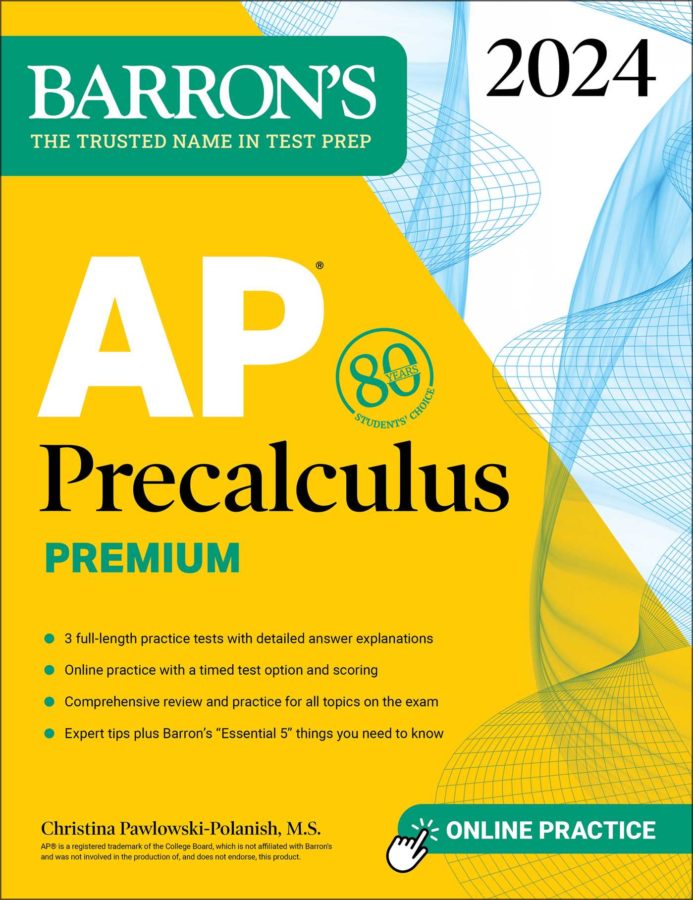CollegeBoard offers new AP class next year: AP Precalculus
Did you know that the Space Race is why you take AP exams every year? American legislators feared that high school students were not being prepared enough for college compared to their Soviet counterparts. As a result, the Ford Foundation created the Fund for the Advancement of Education (FAE) in 1951, which would go on to bridge the educational disconnect between high school and college. They investigated the records of high-achieving graduates of Ivy League colleges such as Harvard, Princeton and Yale, concluding that high school students needed “advanced placement” into universal, collegiate-level introductory classes. And so the AP classes were born.
The first AP exams were administered to 27 schools in 1954 by the FAE but were passed onto the College Board in 1955. The following year, the AP exams were released nationally in subjects like mathematics, physics, chemistry, biology, English composition, literature, French, German, Spanish and Latin. Students were scored on a scale of one to five, the same as today, but exam fees were only $10.
Nowadays, College Board offers over 38 AP classes with the average cost per exam being $97. Recently, College Board announced that in the fall of 2023, they will be launching AP Precalculus. This announcement was met with mixed reactions from students and teachers alike. Our school is known for our rigorous academics and along with that burden comes stress, anxiety and depression.
College Board made over $1 billion in revenue in 2019 alone. Students feel that the addition of AP classes are simply ways for College Board to make more money, especially because College Board has convinced students that the only way to get into a well-respected college is by paying them to take their exam. Honors precalculus student and sophomore Diya Khetan said, “I think that especially at Wootton it’s completely unnecessary and it’s solely for the purposes of money. Clearly, all CollegeBoard wants is money. They make us sign up for AP exams and pay them like three weeks into the quarter, so if someone decides to drop out halfway into the semester, they’re still stuck paying a cancellation fee. Clearly that shows they don’t actually care that we want to take the exam because we feel prepared for it rather they just want to make money off of it.”
This raises the question: Is it worth taking AP Precalculus for the credit or for the sake of saying it’s an AP class? Honors precalculus teacher Jon David Marchand said, “Will a lot of kids from Wootton take it? Of course, because it’s an AP course and they think that it’s really going to help them, so they’re all going to strive for AP Precalc. Is it going to be different from honors precalc? I assume so, it would probably be harder than honors precalc. In the sense of probably just more topics and a little bit harder problems, a little more in-depth.”
Students agree with Marchand “We already have honors precalculus at Wootton and our honors precalc curriculum is extremely rigorous. We’re already having cumulative assessments like the quarter exam we have so adding AP Precalc is unnecessary,” Khetan said. “Furthermore, precalc isn’t even a class in college so getting AP credit for that is completely useless. If all you want is the rigor, taking honors precalc is plenty enough.”
A reason for taking AP Precalc would be for the college credit you receive after completing the exam with a score of three or higher. “From my understanding, and I could be wrong, there’s no credit for pre calc in college or if there is, it’s remedial so I’m wondering how you’ll get college credit,” Marchand said.
With little information about the proposed curriculum and class itself, it’s easy to jump to conclusions. However, according to head of the math department, Kayla White, Wootton will not be offering AP Precalculus next year.
Your donation will support the student journalists of Thomas S. Wootton High School. Your contribution will allow us to purchase equipment and cover our annual website hosting costs.
Naina Giare is a 2025 graduate.







